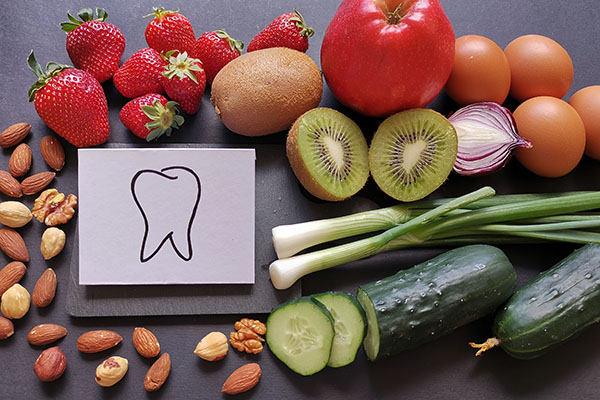 Healthy teeth are a vital part of being able to eat and enjoy food, but certain foods can be more harmful to dental health than others. Learning about foods that help and hurt the teeth is an important part of oral hygiene basics that can be helpful in guiding the choices people make when caring for their teeth.
Healthy teeth are a vital part of being able to eat and enjoy food, but certain foods can be more harmful to dental health than others. Learning about foods that help and hurt the teeth is an important part of oral hygiene basics that can be helpful in guiding the choices people make when caring for their teeth.
Foods to avoid
While some foods can be detrimental to the teeth, they should still be acceptable to eat on occasion. Simply recognizing the problems they can cause and cutting back on them when possible is a key part of oral hygiene basics that improve dental health.
Sugary and starchy foods
Sugary or starchy foods like candy and soda can stick to the teeth more than other types of food, creating a place for bacteria to gather and feed. Bacteria in the mouth is the main cause of plaque, a substance that builds upon the teeth and causes them to deteriorate over time. The longer sticky foods are left on teeth, the more bacteria can gather and grow, so brushing the teeth after consuming these items is important.
Acidic foods
Acidic foods, such as citrus fruits, tomatoes, pickles, and wine, can break down tooth enamel over time. While many of these foods, such as fruits, can also come with health benefits, it is important to avoid eating them for long periods of the day. Keeping consumption of these items restricted to mealtimes can help cut back on the damage that occurs over prolonged exposure to acidic foods. Unlike with sugary foods, it is a good idea to wait for a few hours before brushing teeth after eating something acidic because the acid can make teeth more sensitive and prone to damage.
Foods that can be beneficial
Many of the foods that are good for the overall health of the body can also be very beneficial to the teeth. Most vegetables, for example, contain minerals that help strengthen the teeth. Dairy and cheese products can also be beneficial because of their high calcium content. Some chewy foods, like meats and certain fruits, help the body generate more saliva, which helps wash away acids and protect the teeth.
Water
Drinking water comes with a long list of health benefits and is an important part of oral hygiene basics. Drinking water throughout the day is a healthier option than soda or other sugary drinks. Rather than sticking to the teeth, it helps rinse away debris that attracts bacteria. A lot of drinking water may also contain fluoride, an important substance that reinforces teeth and prevents cavities from forming.
Conclusion
When following good oral hygiene basics, the best diet for dental health can be one that cuts back on sugary and acid foods. Eating more foods that are rich in calcium and other vitamins and minerals can help strengthen teeth. While foods that are harder on the teeth do not need to be completely eliminated from a person's diet, reducing the frequency in which they are consumed can help improve the health of teeth.
Request an appointment or call Gledhill Dental at 509-800-8410 for an appointment in our Kennewick office.
Related Posts
Implant supported dentures combine traditional dentures with permanent dental implants to provide a stable and secure tooth restoration option. Unlike traditional removable dentures, this option is supported by two or more dental implants rather than your gum tissues. The additional stability of dental implants may make it simpler to bite and chew meals, particularly with…
Having a solid handle on good oral hygiene basics will help preserve the integrity of your teeth and mouth health for a long time to come. Steering clear of cavities, receding gums, or decay ensures that your smile is bright and beautiful for as long as possible. If you think you already have an excellent…
Having a firm understanding of oral hygiene basics can prevent tooth decay, gum disease, and general oral discomfort. Human beings go through life developing a range of habits that impact oral health, some of which are good and some of which are bad. Avoiding these damaging behaviors promotes strong teeth and gums that can last…


